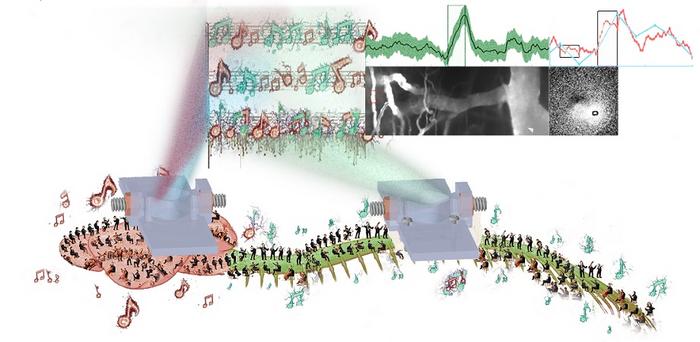Pandemic Sees 18% Surge in Alcohol-Related Mortality Rates
The COVID-19 pandemic has drastically altered lifestyles globally, compelling many to adapt to unprecedented changes. One of the more alarming trends that surfaced during this period is the significant increase in alcohol consumption and its severe repercussions on public health. Research published in the Canadian Medical Association Journal reveals a drastic rise in alcohol-related deaths […]


The COVID-19 pandemic has drastically altered lifestyles globally, compelling many to adapt to unprecedented changes. One of the more alarming trends that surfaced during this period is the significant increase in alcohol consumption and its severe repercussions on public health. Research published in the Canadian Medical Association Journal reveals a drastic rise in alcohol-related deaths and hospitalizations during the pandemic in Canada, showcasing the gravity of this public health crisis.
The research identifies an 18% uptick in alcohol-related deaths during the pandemic years from 2020 to 2022, with the most staggering figures emerging in 2020 and 2021, where the increase reached approximately 24%. This tragic growth translates to an estimated 1,600 additional deaths attributed to alcohol consumption that occurred in Canada during these years. Concurrently, hospitalizations linked to alcohol use disorders rose by about 8%, peaking at a staggering 14% increase during 2020/21.
This alarming trend underscores the impact of external stressors, such as the pandemic, which have the potential to trigger detrimental behavioral changes among various demographics. Researchers observed that over a quarter of respondents reported increased alcohol consumption, with 18% acknowledging that they engaged in heavy drinking at least once during the pandemic. This distortion in alcohol habits is not merely an individual concern; it reflects systemic issues within society related to mental health and access to substances.
Moreover, the study reveals regional disparities in the rise of alcohol-related casualties, with the Prairie provinces and British Columbia experiencing the most significant increases in both deaths and hospitalizations. Notably, death rates from alcohol use were three times higher in the Prairie provinces and six to seven times greater in comparison to Quebec. This suggests that targeted interventions based on regional characteristics may be crucial in addressing the problem effectively.
A pivotal focus of the study is the demographic insights gleaned from the data. Younger adults, specifically those aged 25 to 44, exhibit the most significant increases in both deaths and hospitalizations related to alcohol use. This finding raises concerns about the long-term implications of such behavior patterns, paving the way for potential liver-related diseases and alcohol use disorders in this vulnerable age group.
The underlying causes of the increase in alcohol consumption may remain multifaceted. Factors such as heightened stress levels, boredom stemming from lockdowns, deteriorating mental health, and increased accessibility to alcohol play pivotal roles. The convenience of online purchasing and expanded retail availability could also be substantial contributors to this troubling trend.
As the findings align with similar trends observed in other countries, it becomes evident that the pandemic has catalyzed widespread increases in alcohol-related health issues. For instance, the United States saw a staggering 29% hike in alcohol-related deaths, while European nations reported a growth of 18%. These parallels highlight a global pattern and point to the urgent need for comprehensive responses.
The authors of the study advocate for immediate interventions to mitigate the rise of heavy drinking behaviors. They assert that preventive measures, as well as effective management strategies for those already grappling with alcohol use disorders and alcohol-related diseases, must be instituted to avert a long-term public health catastrophe.
The lessons from this research have far-reaching implications. Health policymakers and public health officials must recognize the importance of addressing the emotional and psychological fallout from the pandemic. This comprehensive approach requires collaboration between various sectors, including health providers, community organizations, and governmental bodies to create a structured response that addresses the root of the problem.
In conclusion, the grave increases in alcohol-related deaths and hospitalizations during the COVID-19 pandemic present a clarion call for action. This situation necessitates ongoing dialogue about the mental health resources available and encourages openness about the struggles that many individuals face. Societal resilience hinges on our ability to recognize and address substance abuse and its consequences post-pandemic.
The journey towards recovery from this crisis is not merely about mitigating immediate risks but should also focus on understanding long-term effects on public health and ensuring that preventative measures are embedded within our healthcare system. As we emerge from the grips of the pandemic, the emphasis on sober public health policy becomes pivotal in fostering a healthier future, underscoring the need for community support, and empowering individuals as the key agents of change.
By taking proactive steps, society may be able to reverse some of the negative trends exacerbated during these harrowing times. A continued focus on research and community awareness will be essential in creating meaningful strategies to combat the dual challenges of alcohol misuse and public health emergencies in the years to come.
Subject of Research: Alcohol-related deaths and hospitalizations during the COVID-19 pandemic in Canada.
Article Title: Mortality and hospitalizations fully attributable to alcohol use before versus during the COVID-19 pandemic in Canada
News Publication Date: 3-Feb-2025
Web References: Canadian Medical Association Journal
References:
Image Credits:
Keywords: Alcohol abuse, public health, psychological stress, mental health, COVID-19, substance-related disorders.
Tags: alcohol deaths surge 2020-2022alcohol use disorder hospitalizationsalcohol-related mortality increasebehavioral changes due to pandemicCanada alcohol consumption statisticsCOVID-19 public health crisisheavy drinking during pandemicimpact of stress on drinking habitsmental health and alcohol use during COVID-19pandemic alcohol consumption trendspublic health implications of alcohol abusestatistics on alcohol-related deaths
What's Your Reaction?

































